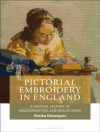Philosophical Perspectives on Play builds on the disciplinary and paradigmatic bridges constructed between the study of philosophy and play in The Philosophy of Play (Routledge, 2013) to develop a richer understanding of the concept and nature of play and its relation to human life and value. Made up of contributions from leading international thinkers and inviting readers to explore the presumptions often attached to play and playfulness, the book considers ways that play in ‘virtual’ and ‘real’ worlds can inform understandings of each, critiquing established norms and encouraging scepticism about the practice and experience of play.
Organised around four central themes – play(ing) at the limits, aesthetics, metaphysics/ontology and ethics – the book extends and challenges notions of play by drawing on issues emerging in sport, gaming, literature, space and art, with specific attention paid to disruption and danger. It is intended to provide scholars and practitioners working in the spheres of play, education, games, sport and related subjects with a deeper understanding of philosophical thought and to open dialogue across these disciplines.












